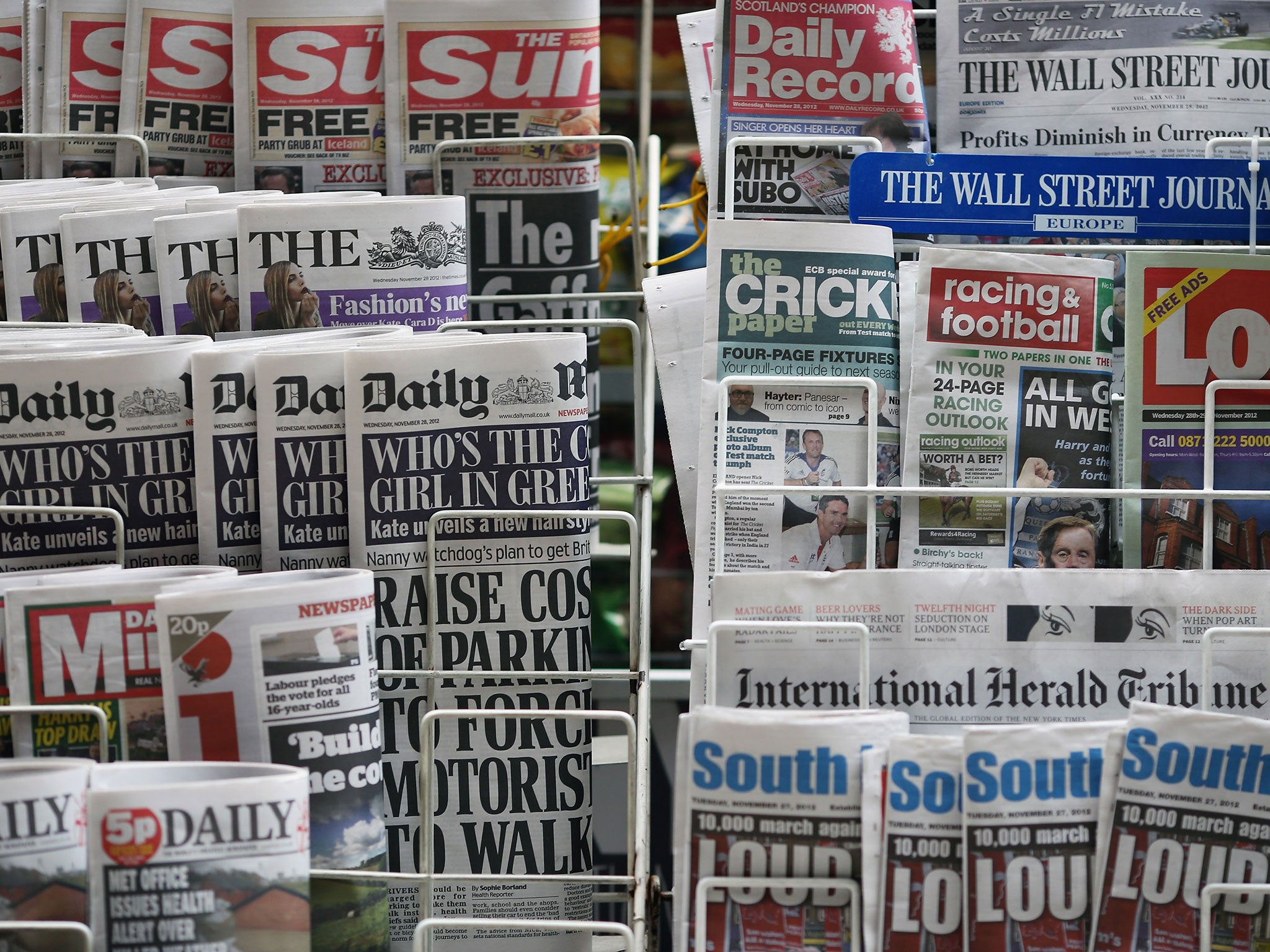The celebrity injunction remains, but the law is redundant in the digital age
Judges do not like to be bullied, especially not by the media and perhaps even less by the spectre of the internet


Your support helps us to tell the story
From reproductive rights to climate change to Big Tech, The Independent is on the ground when the story is developing. Whether it's investigating the financials of Elon Musk's pro-Trump PAC or producing our latest documentary, 'The A Word', which shines a light on the American women fighting for reproductive rights, we know how important it is to parse out the facts from the messaging.
At such a critical moment in US history, we need reporters on the ground. Your donation allows us to keep sending journalists to speak to both sides of the story.
The Independent is trusted by Americans across the entire political spectrum. And unlike many other quality news outlets, we choose not to lock Americans out of our reporting and analysis with paywalls. We believe quality journalism should be available to everyone, paid for by those who can afford it.
Your support makes all the difference.It seems that the celebrity privacy injunction is alive and kicking after all. Indeed, today’s Supreme Court judgement in the case of PJS, a married man who is said to have had a threesome with another couple, shows that the courts have no intention of departing the field in the battle between individual privacy and the public’s right to know.
In a four-to-one decision, the judges came down on the side of the celebrity, who initially sought to prevent the Sun on Sunday publishing a ‘kiss and tell’ story about his extra-marital activities back in January. In the period that followed, with numerous media outlets expressing dismay at the granting of the original injunction, speculation mounted as to the celebrity’s identity. Details about him and the story he had sought to block subsequently appeared on social, and in foreign, media. The Sun on Sunday’s publisher, News UK, has argued that the continuation of an injunction which only applies to England and Wales is nonsense.
That the Supreme Court has decided to hold the line is perhaps no surprise. Judges do not like to be bullied, especially not by the media and perhaps even less by the spectre of the internet. Maintaining the injunction may look idealistic but had it been lifted the court would have effectively been admitting that English privacy laws are redundant. In short, the judges were caught between a rock and hard place.
Yet it cannot be in doubt that this case raises important questions about the frontier between national laws and the reality of globalised communications. Comparisons have inevitably been drawn with the Spycatcher case three decades ago, when the government sought to prevent the media from reporting claims made in the memoirs of a retired MI5 agent – memoirs which were freely available to buy abroad. Just as then, the case of PJS calls into doubt the practicability of keeping secrets within a bubble when the bubble’s walls turn out to be porous.
This time, though, the transfer of information is made many times easier by the advent of the internet and our ability to view material in our homes which does not fall under the jurisdiction of English law. Judges evidently recognise the dilemma. As Lord Mance said in today’s verdict, “the court is well aware of the lesson which King Canute gave his courtiers”, though he added warningly: “Unlike Canute, the courts can take steps to enforce its injunction pending trial”.
And while many will slam the decision for paying too little heed to reality, it is hard to ignore the fact that the public interest argument in favour of the story’s publication is really quite weak. The celebrity does not hold public office and there is little evidence that exposing his infidelity would correct a “misleading public impression” that he has sought to cultivate. That is why the public domain argument has been so strongly the focus of attention in this case.
Whether the Supreme Court ruling will encourage other celebrities to use injunctions to protect their privacy is hard to assess. PJS and his partner clearly believe there is merit in continuing their fight and the judges today emphasised their view that “intensive coverage of the story by the Sun on Sunday (and…other newspapers) as well as unrestricted internet and social media coverage…could constitute additional and potentially more enduring invasions of the privacy of PJS, his partner and their children” than they have already experienced.
Still, other celebrities may not fancy being at the centre of the kind of storm this case has provoked, and they may therefore think twice about seeking to injunct information which will inevitably circulate elsewhere. Perhaps even more profitably, it might make them more circumspect about how they behave behind closed doors, and about who they engage in such behaviour with.
It would be overly simplistic to conclude today that the law has shown itself an ass. But in our modern, hyper-connected, super-gossipy world, it is – at least in the field of privacy – gradually being left behind.